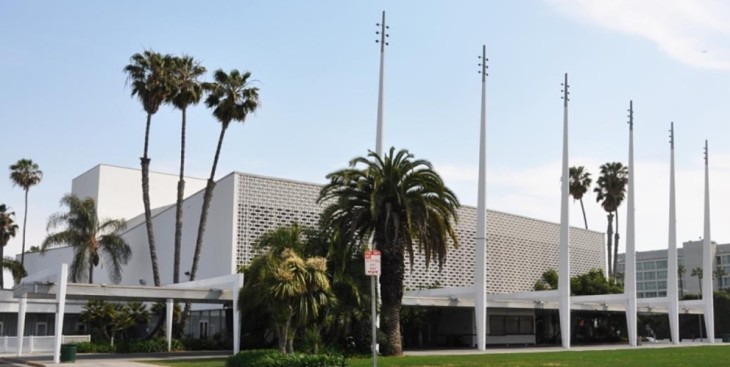Full disclosure: I proudly own and use a flip phone, a clam shell… a charming antique. Laugh all you want, but there is no search history available to the FBI on my phone. There is no e-mail on it that would link me to terrorists or even a sports bookie. There’s no porn on my phone, although I think I may have sent a text in October telling a female friend that I thought her Sarah Palin witch costume was “beguiling.” I’ve cut my phone bill data charges not just in half, but to zero. Because I don’t get any data on my phone.
That said there is definitely something to talk about concerning a court order issued earlier this week requiring Apple to help the FBI access encrypted data on a cellphone belonging to the couple who killed 14 people in San Bernardino. Cyber security people believe there will be a far-reaching impact if Apple helps out. Apple CEO Tim Cook says that creating a “backdoor” to phones for law enforcement wouldn’t guarantee that the “help” being asked for right now would be limited to just this one case.
Each time that we’re confronted with the vulnerability, or in this case the potential vulnerability, of our expectations of privacy with all of the mountains of traceable digital information we are creating every day we feel a little less secure. Well, we should. At no time in human history have we ever littered a landscape, albeit a digital one, with more detritus than we are at the current time.
Think of an old episode of “The Rockford Files.” Knowing he had a full hour of network television to kill, James Garner would amble through his investigation picking up a tip here and there from a cocktail waitress or maybe a kid on a bicycle who saw something ‘weird’ going on near the power plant. Then Garner would dig through a wad of cash register receipts he pulled out of a dumpster and start calling folks on his beige telephone. One or two car chases and a flirty lingerie store clerk later… case solved.
Rockford never had to cajole a computer hacker with a colorful name like “Rooster” or “Zeus” to help him dig into somebody’s personal data, because we weren’t creating personal data back then. Now a high school kid facile with a laptop can assist anybody that wants to know what purchases I’ve been making and what web sites I like to visit, pretty much accessing my entire life. They can go to Facebook and uncover valuable information such as what I ate last night at Denny’s. Because, stupid me, I took a photo of my Pot Roast Melt. Of course I did! It was beautiful!
Syed Rizwan Farook, the male perpetrator of the San Bernardino killings, intentionally disabled his phone’s iCloud backup function weeks before the shootings. For authorities to get access to any information tracking the couple involved, they have to get into the phone itself. The cops can’t just download what they want, the way they would you or me if we were being looked into.
But they won’t find anything on you and me because we’re not up to anything… are we? If we are up to something, are we owed any protections? Keep in mind that while I didn’t encrypt that shot of my Pot Roast Melt, I might not have posted it on FB. Maybe my ingesting that sandwich was something I desperately wanted to keep private, between me and my waistline.
An LA Times article on the showdown between Apple and the FBI quotes Jan Dawson, a chief analyst at technology advisory firm Jackdaw Research. “They’re (Apple) worried about setting the precedent, of saying ‘Apple devices are incredibly secure, unless we get a subpoena.’ “ Futurist and tech genius Donald Trump immediately weighed in with “To think that Apple won’t allow us to get in her cellphone – who do they think they are? No, we have to open it up.” Trump got it wrong that the phone was Farook’s, not his partner’s. Unusual, him getting something wrong…
Still, his attitude probably stands as a cloddish barometer of what many people are thinking: Law enforcement has to stay one step ahead of technology. If it meant your safety or the safety of your children, would you be patient with Apple? One of scariest aspects of our current situation with all this is the sheer volume of information we surrender involuntarily. Ordering a product online tees you up to get catalogs from ten new vendors. Lord knows what’s happening with customer satisfaction surveys. Does my dog know how many times I’ve “Liked” a picture of a cat with sunglasses? But if we can personally secure nothing from the government… well, look, I’m telling you right now I plan to have another one of those sandwiches. Conversely, if you don’t want your phone probed then don’t plan and execute a mass killing in the first place.
Postscript: Wednesday Apple released an online “Customer Letter” concerning the request from the FBI, go to: apple.com/customer-letter

























